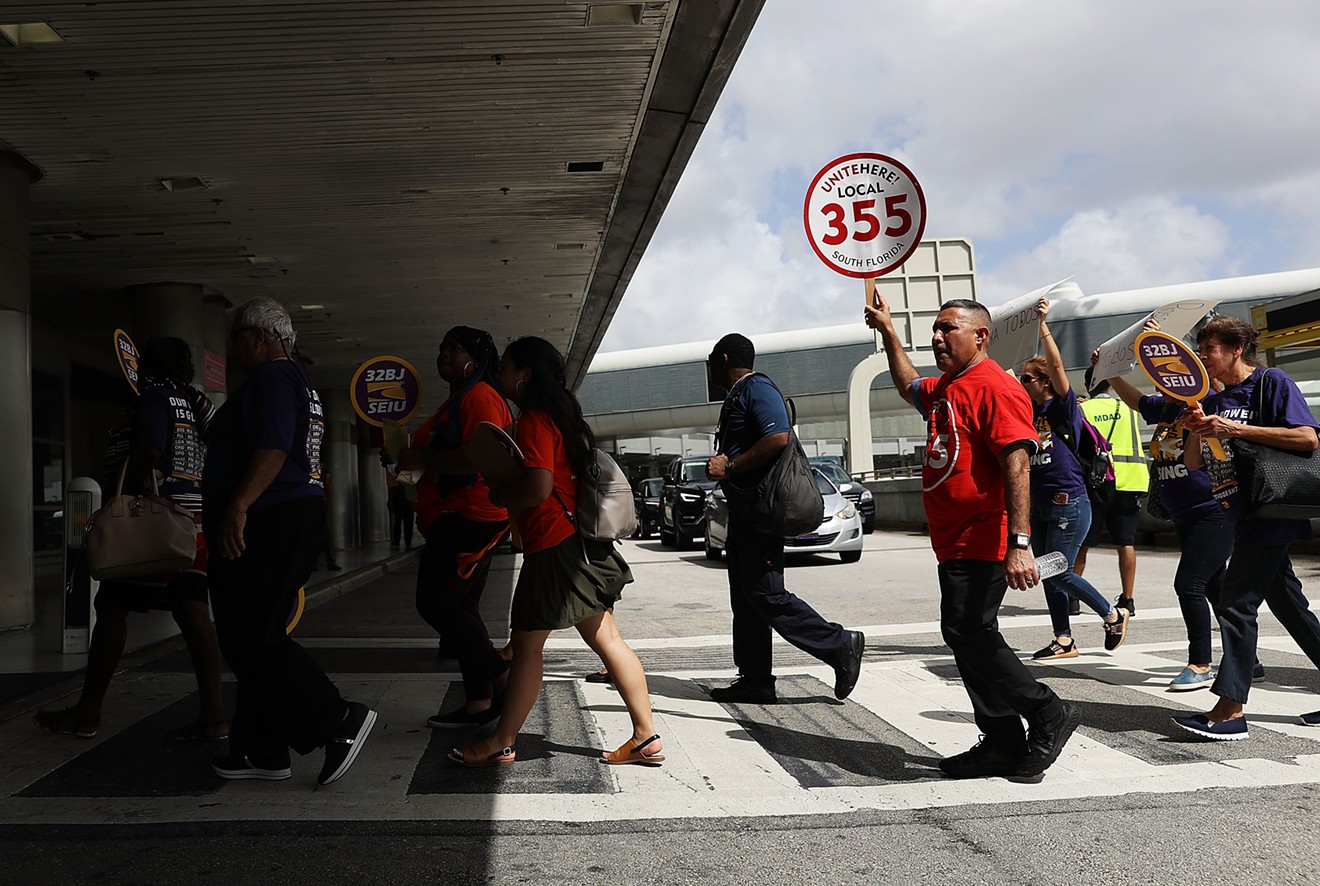Contract workers in Miami-Dade County often feel they have to make a tough choice when they're sick: Do they stay home and miss out on a paycheck, or do they go to work and put other people at risk? During the COVID-19 pandemic, the implications of those decisions are even more serious.
On Thursday, the county commission will consider a proposed ordinance from Commissioner Daniella Levine Cava that would require companies who take county contracts to give their workers paid sick leave.
Yesterday, a group of contract workers and advocates held a virtual press conference calling for the county commission to pass the ordinance and support workers and their families.
Koran Henderson, a contracted security officer at Miami International Airport, said during the conference that she fell deeply ill a month ago and had to stay home without pay.
"I live with my unemployed mother, and I am the sole breadwinner," Henderson said. "I come in close contact with hundreds of people daily, but I don't have paid sick days or even health insurance."
Only 12 states and the District of Columbia have laws requiring paid sick leave, and Florida isn't one of them. Contractors in Miami-Dade are required to pay their workers a living wage of $15.83 per hour without benefits, but since the county wants competitive bidders with the lowest prices, contractors often cut corners by not paying for sick leave, according to local union reps.
"Bidders keep costs low by bidding to minimum standards," said Helene O'Brien, the Florida director of 32BJ Service Employees International Union, which represents service workers like security guards and janitors.
Without sick leave, the advocates said those companies increase the risk of COVID-19 spread in Miami-Dade County since contract workers often show up to work sick.
Outside of the coronavirus crisis, some health officials said the lack of paid sick leave poses a great threat to people with chronic illnesses and could even be a financial burden on the county.
Dr. Tobenna Ubu, a resident physician at Jackson Memorial Hospital, said he has had patients who couldn't make it to their follow-up appointments because they couldn't afford to miss work. Those patients' conditions often worsened despite being treatable.
"I had a patient who, every time he came to the clinic, he had to weigh the decision if he was gonna lose money for missing work," Ubu said. "This patient ended up with several hospital admissions for major procedures that left him out of work."
Because Jackson Memorial is subsidized by Miami-Dade County to pay for low-income patients, Ubu said the county is paying even more for workers who end up in the hospital with exacerbated conditions than it would if the county had a paid sick leave policy.
Ubu added that the lack of paid sick leave directly affects minority communities, who often take lower-paid contract jobs.
Already, the ordinance has met with some resistance from people who believe the cost to the county will be too high.
The Miami Herald quoted Miami-Dade Commissioner Esteban Bovo in February disparaging the proposal because of the cost to taxpayers, likening it to former presidential candidate Bernie Sanders' proposals for free college education and Medicare for All.
"I know we live today in a Bernie Sanders world, where everybody is going to get something for free. News flash: Somebody has to pay for this," Bovo said, according to the Herald.
O'Brien said those cost estimates assume that every employee taking sick leave will need a replacement for the time they're gone and that they'll take all seven days at once. Neither is a likely scenario, she said.
If passed, the ordinance will cover any employee working for a company contracted with the county, including security and janitorial personnel at the airport, libraries, Metrorail stations, and bus stops and stations.
"This is about public health. It's one of these basic necessities," O'Brien said. "We're talking about frontline workers who interact with the public and don't have means to stay home."
[
{
"name": "Air - MediumRectangle - Inline Content - Mobile Display Size",
"component": "19274298",
"insertPoint": "2",
"requiredCountToDisplay": "2"
},{
"name": "Editor Picks",
"component": "17482312",
"insertPoint": "4",
"requiredCountToDisplay": "1"
},{
"name": "Inline Links",
"component": "18711090",
"insertPoint": "8th",
"startingPoint": 8,
"requiredCountToDisplay": "7",
"maxInsertions": 25
},{
"name": "Air - MediumRectangle - Combo - Inline Content",
"component": "17482310",
"insertPoint": "8th",
"startingPoint": 8,
"requiredCountToDisplay": "7",
"maxInsertions": 25
},{
"name": "Inline Links",
"component": "18711090",
"insertPoint": "8th",
"startingPoint": 12,
"requiredCountToDisplay": "11",
"maxInsertions": 25
},{
"name": "Air - Leaderboard Tower - Combo - Inline Content",
"component": "17482313",
"insertPoint": "8th",
"startingPoint": 12,
"requiredCountToDisplay": "11",
"maxInsertions": 25
}
]












